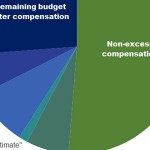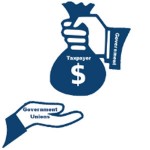Disclosure and the Separation of Politics from Life
During a Twitter debate online concerning campaign finance and anonymous donations to think tanks and the like, Public’s Radio reporter Ian Donnis summarized his perspective thus:
Entities with millions to drown out their opponent is ‘part of an open & free democracy’? OK then!
That’s what the best interpretation of the pro-donor-disclosure point of view comes down to. As Mike Stenhouse noted in the thread, the other side of the coin is that the people who donate those “millions” to such organizations aren’t only, or even mainly, the powerful rich, and disclosing donors is a way to allow targeted political campaigns against them.
The fact is that people whose views are not in line with the progressive mainstream narrative do have an entirely reasonable and well-substantiated fear that their political donations will make them targets for activists. This possibility — and the countless iterations that occur on lower levels — strikes at the heart of our democracy.
Carry the logic out a bit: Why not identify every person’s ballot and make it public, in the name of transparency?
[box type=”tick” style=”rounded”]Please consider a voluntary, tax-deductible subscription to keep the Current growing and free.[/box]
We manage peace in a diverse and free society because we separate out politics from other areas of life. If donating to a particular candidate or cause puts my family or business under threat, then our society is no longer answering political questions through a discrete set of rules. We can no longer have our political contests and then return to other interactions with maximum cooperation.
But isn’t using wealth to political advantage a violation of the principle that politics should be a separate matter? Perhaps in a manner of speaking, but there are all sorts of ways to have disproportionate influence in politics based on other areas of our lives — whether because of a job in media, family connections, affiliation with a government labor union, or whatever — and we can’t root all of them out of politics. Moreover, our personal interests obviously influence the public policy that we prefer, and it would be plainly tyrannical to prevent people from voting according to their interests, from wherever they derive.
So, we should be hesitant to limit different types of influence, so as to maintain balance, while striving to keep those sources of power from being used by citizens against each other outside the intermediary of politics.




